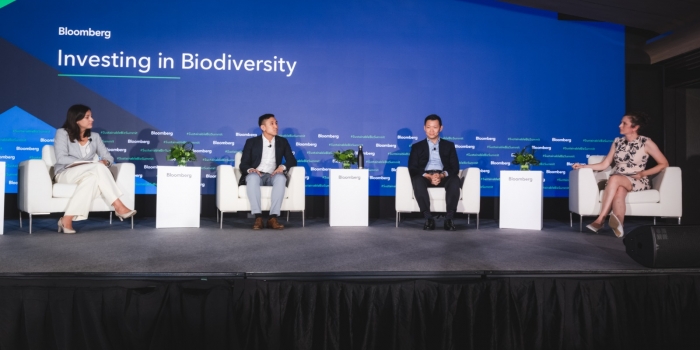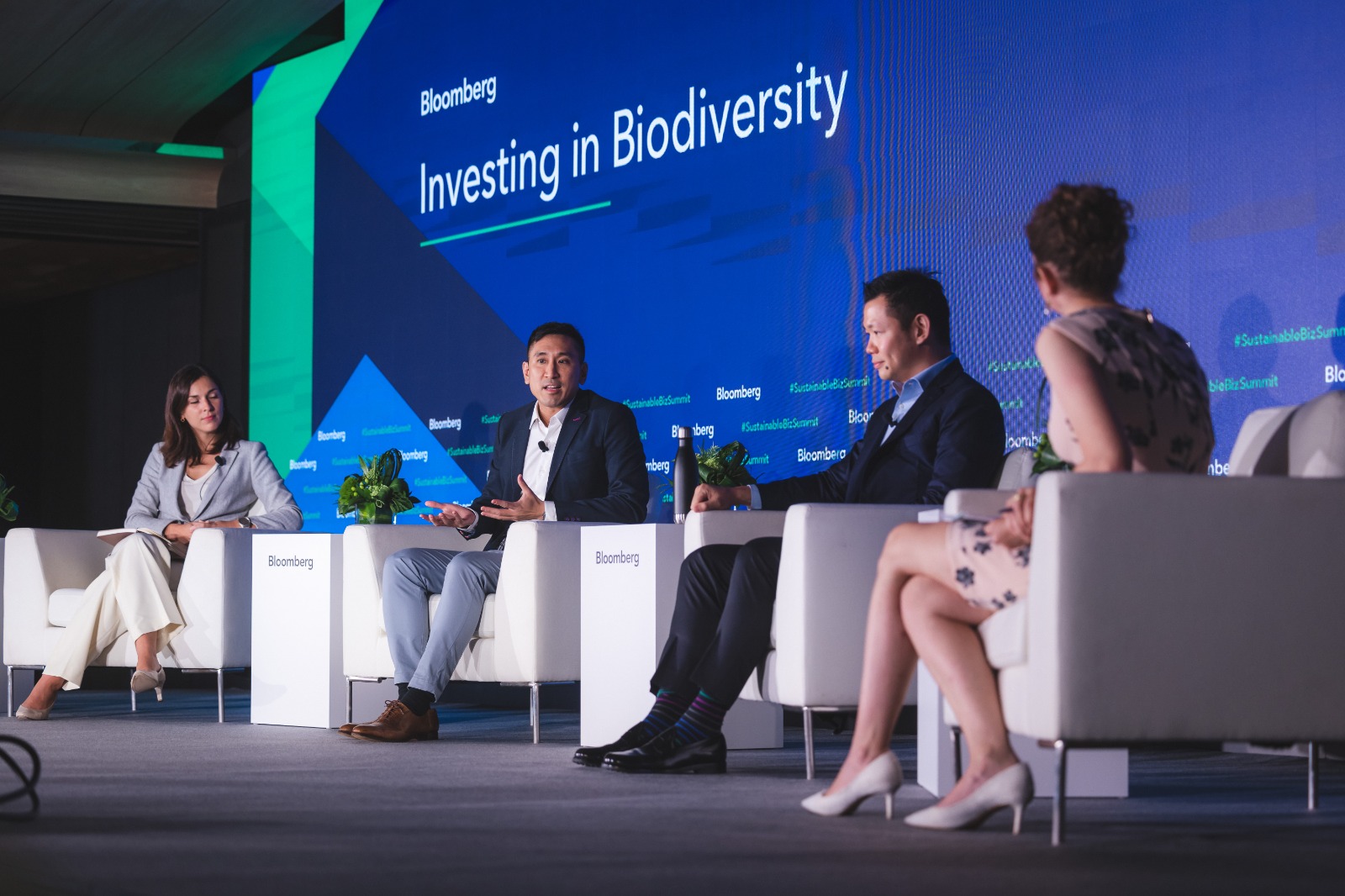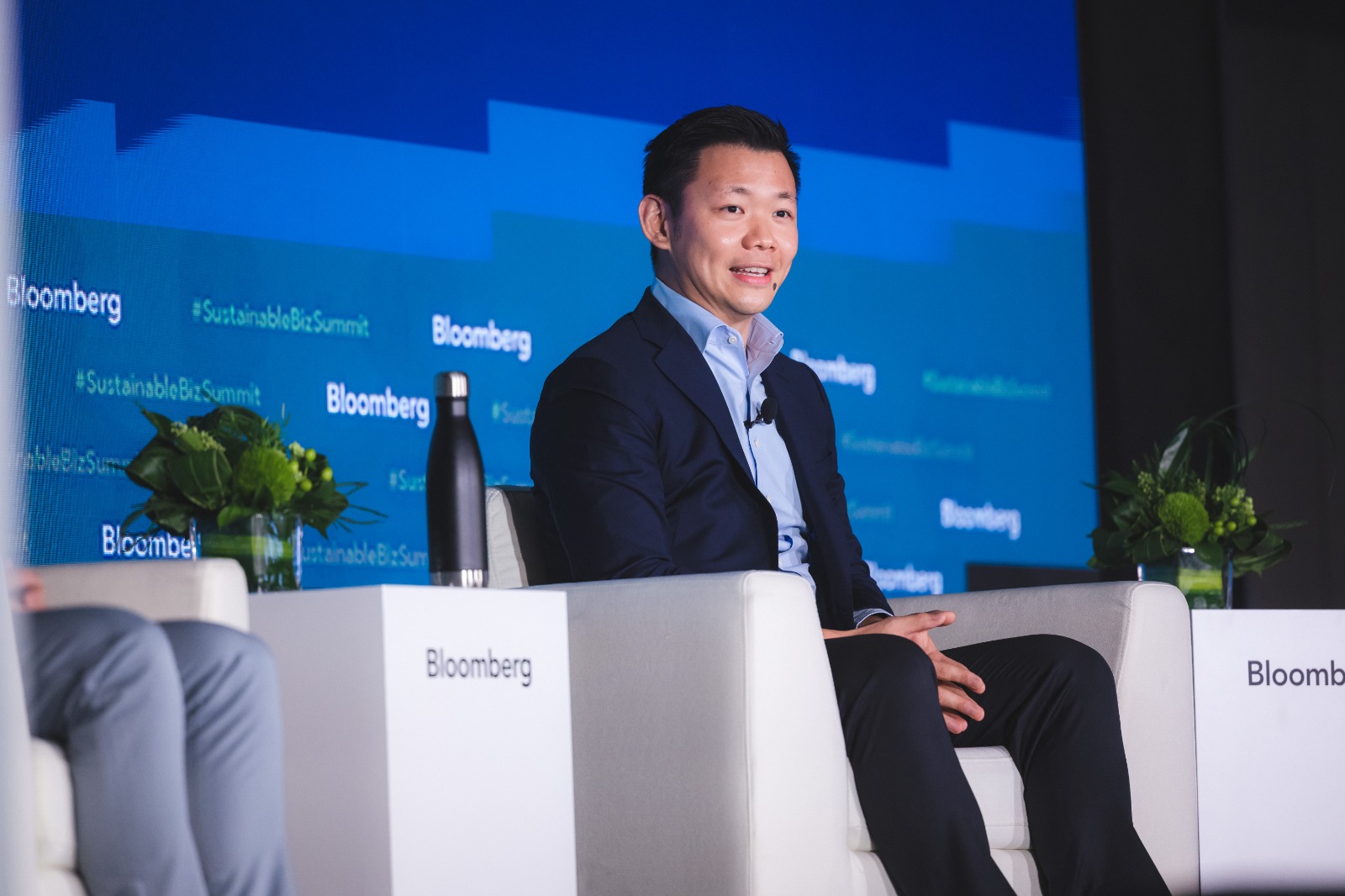Woodfibre LNG Accelerates Canada’s Pathway to Net Zero
Woodfibre LNG is proud to announce its Roadmap to Net Zero, a tangible plan to achieve net zero emissions by the time operations start in 2027, 23 years ahead of...

Latest updates on what's happening in RGE Group

Over half of the world’s total GDP is dependent on nature.[1] Despite the positive ecosystem services that are provided through biodiversity, addressing biodiversity loss is often overlooked. As the world continues to grapple with climate change, the biodiversity that billions of people rely on for food, medicine, and energy is in danger.
At the Bloomberg Sustainable Business Summit 2022 held on 27 July 2022, for which RGE was the presenting sponsor, RGE’s Managing Director Mr Anderson Tanoto shared why being sustainable and investing in biodiversity make good business.
He took part in a panel discussion titled “Investing in Biodiversity”, alongside Ms Laura Bosch Ferreté, Sustainable Investing Specialist at Robeco, and Mr Kelvin Chiu, Founder & Principal at Silverstrand Capital, who shared views from the risks and impact investing perspectives. Ms Michelle Jamrisko, Bloomberg’s Senior Asia Economy Reporter, moderated the discussion.

RGE’s Anderson Tanoto spoke alongside fellow panellists Laura Bosch Ferreté, Sustainable Investing Specialist at Robeco; and Kelvin Chiu, Founder & Principal at Silverstrand Capital
Nature-based solutions are key to tackling climate change and biodiversity loss
A recent study by the Academy of Sciences Malaysia found that in Southeast Asia, investing in productive biodiversity could mean more than US$2.19 trillion in benefits a year. What does success look like for biodiversity protection?
Framing the discussion, Mr Tanoto explained that tackling carbon issues is intertwined with conserving biodiversity, “In environmental science, everyone’s talking about carbon, but people forget that carbon is something that you don’t see; with biodiversity, you can. A big part of carbon is biodiversity, in the form of ecosystem services.”

‘Carbon is something that you don’t see; with biodiversity, you can.’ Anderson Tanoto explained the significance of investing in and supporting biodiversity
Companies have a huge role to play in protecting biodiversity so that we can truly enjoy the benefits from carbon reduction.
RGE has led the way with one of the world’s largest conservation projects. In 2015 at COP21, RGE made a one-for-one commitment to restore one hectare of forest for every hectare of plantation, in line with its Production-Protection philosophy. To date, RGE has invested over $100 million to conserve and restore around 150,000 hectares of forest within the Riau Ecosystem Restoration, which is equivalent to the size of London.
To tackle both climate change and biodiversity loss, as well as attract investors onboard, nature-based solutions are key. Mr Tanoto spoke about RGE’s partnership with Professor Koh Lian Pin, Director of NUS Centre for Nature-based Climate Solutions, to build a digital twin of forests in Indonesia. By leveraging Landstat satellites, the project has made it easier for auditors to measure biodiversity in forests, while providing investors with access to measurable and traceable carbon emissions data.
Investors play a key role in forest conservation
According to Mr Chiu, only 2% of climate finance goes towards nature-based solutions. For investors to come forward, there is a need for a more enabled environment, in terms of better science and an understanding of conservation opportunities. Ms Bosch Ferreté highlighted the importance of assessing and mitigating investment risks. This can be done through detailed analyses and integrating nature-related risks into the assessment of portfolios.
To bridge both points, Mr Tanoto shared about the benefits of sustainability-linked loans (SLLs). RGE secured US$1.65 billion in SLLs last year, making the Company one of the largest issuers in Singapore in 2021. Two key performance indicators were tied to the SLLs — 0% biodiversity loss and generating additional conservation gains. Failure to comply will trigger penalties in the form of higher rates.
“A KPI that is linked to actual real numbers aligns everyone. I think managing risks is about aligning interests. So, if there’s biodiversity loss, the company must take action on the ground. It’s very important for us to be able to act on the ground and make a difference,” added Mr Tanoto.
Making sustainability widespread to move the needle
Beyond investment opportunities and risks, environmentally-conscious millennials are spending on goods and services that share their values, in search of brands that are truly sustainable. In line with this shift, RGE aims to make sustainability widespread and accessible to everyone in order to really move the needle.
Mr Tanoto pointed out two challenges that need to be addressed. The first is the danger of “short-termism”. As the impact of biodiversity conservation and sustainability efforts take time to come to fruition, companies need to take a long-term view. Secondly, consumers need to make the right decision and discern truly sustainable products from those that are merely trying to be sustainable. Regulators can help in this respect to point consumers in the right direction.
The shift to nature positive for a more sustainable future
Ultimately, the panellists were upbeat about nature protection. Ms Bosch Ferreté acknowledged the rise in awareness among the investment community, while Mr Chiu shared that society recognises net zero is no longer enough; there is a need to move towards nature positive.
Ending on an optimistic note, Mr Tanoto said, “Being sustainable makes good business. There are a lot of things we can do that are sustainable; that is good for biodiversity, and makes good money. With that intention in mind, I think we can make the next few years much better.”
[1] Source: The New Nature Economy Report